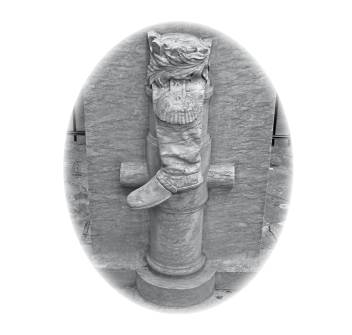Integrity: Benedict Arnold’s Treason Essay
During the first six years of the American Revolution, no one sacrificed more for the cause than Benedict Arnold of Connecticut. In 1775, he led a failed American invasion of Canada, in which the participants nearly died from starvation and exposure traversing the wilderness of Maine. The following year, Arnold helped turn back a British invasion of the United States from Canada at Valcour Island on Lake Champlain. Most important, in the fall of 1777, General Arnold played the critical role in forcing the British to surrender at Saratoga, NewYork. This victory convinced France to enter in to an alliance guaranteeing American Independence.In securing that critical success, Arnold suffered grievous wounds that cost him a couple of inches of bone in one of his legs and left him disabled.
In the opening months of the Revolution,Americans shared Arnold’s patriotism. But as the war wore on, many lost their enthusiasmand dropped out of the cause, leaving Arnold increasingly disgusted by the apathy of his fellow countrymen. Not only did Arnold’s fellow citizens leave the tough job of fighting the British up to a tiny minority; they also neglected to support the army financially, instead concerning themselves with their civilian pursuits. Arnold grew more and more frustrated with these “sunshine patriots.”
Many Continental Army officers and enlisted men shared Arnold’s bitterness toward the American public. Others expressed their frustration either by simply resigning and going home, or by organizing themselves to lobby Congress fora redress of grievances. Officers pressured Congress to recognize their services by voting them a military pension and to provide for the widows and orphans of those killed in action.
But the tactless Arnold lacked the patience for collective action. Instead he preferred to take lonely and dramatic stands on his own. Denied the major general’s commission he believed he deserved (Connecticut, it seemed, already had its quota of major generals), he battled Congress on his own for justice. Thanks to the loyal support of his commanding officer, General George Washington,Congress grudgingly awarded Arnold the position,but refused him the seniority he merited. Arnold saw this as Congress being petty. Instead of joining the officers’ campaign for a pension, Arnold fought a personal crusade to win financial relief for the family of Dr. Joseph Warren, killed at Bunker Hill.When all else failed, Arnold opened his own wallet to help the suffering Warren family.
A “perfect storm” of factors—his crippling injuries, his intolerable mistreatment, and even his recent marriage to a lady half his age with strong British connections and a lifestyle he could no tafford—all drove Arnold to reckless measures.He concluded that the new United States had become even more corrupt than Great Britain. And if that was the case, then the colonies might as well reconcile with the mother country. And who better to bring about that reconciliation than Arnold himself—the one and only virtuous revolutionary remaining? Self pitying and increasingly delusional,Arnold contemplated the unthinkable: He would defect to the British! He even convinced himself that his treason would inspire other officers to defect, crushing the Revolution once and for all.

Arnold used his influence with his loyal mentor, General Washington, to obtain command of the critical U.S. fort at West Point on the Hudson River. He then closed his infamous secret deal with the British: He would turn over West Point to the enemy without a fight! Even worse, he would betray the commander who had always stood up for him. Arnold carefully arranged the surrender to take place while General Washington was present at West Point, so that the British would not only acquire the strategic stronghold, but would also obtain Washington as a prisoner! In return, Arnold would receive a general’s commission in the British army and a whopping cash reward of 10,000 pounds sterling.
In the end Arnold’s treasonous plot against both his country and his commander failed—only because some local militia forces by chance captured a spy,Major John Andre, carrying last-minute details of the conspiracy. Washington, who now knew of Arnold’s treachery, secured West Point. The turncoat fled to the British for protection. Washington demanded Arnold’s return, so that he could be hanged for treason. When the British refused to hand over Arnold,Washington instead hanged John Andre, the captured British courier. Andre, a handsome, charming, well liked young British officer, died at the gallows in place of Arnold.Although appointed a British general as he had been promised, Arnold never obtained the fame and recognition he craved. Having proven himself a traitor, the British could never trust him with significant responsibilities.Arnold’s claim to fame during the remainder of the war was to burn to the ground the city of New London,Connecticut (just a few miles from his birthplace in Norwich), in a British raid. After the war, Arnold went to England, where he lived until he died at the age of 60. He has been reviled in American history ever since as a traitor to his country.

This monument to Benedict Arnold at Saratoga National Historical Park in New York is the only war memorial in the U.S. that does not bear the name of its honoree.
The ultimate irony of Arnold’s treason is that it sent such shock waves across the U.S. that instead of inspiring mass defections and a reconciliation with Great Britain, it instead inspired the very patriotic sacrifices for the cause that Arnold had once sought—the very sacrifices needed finally to secure American Independence.
–Stuart Leafier
LaSalle University
